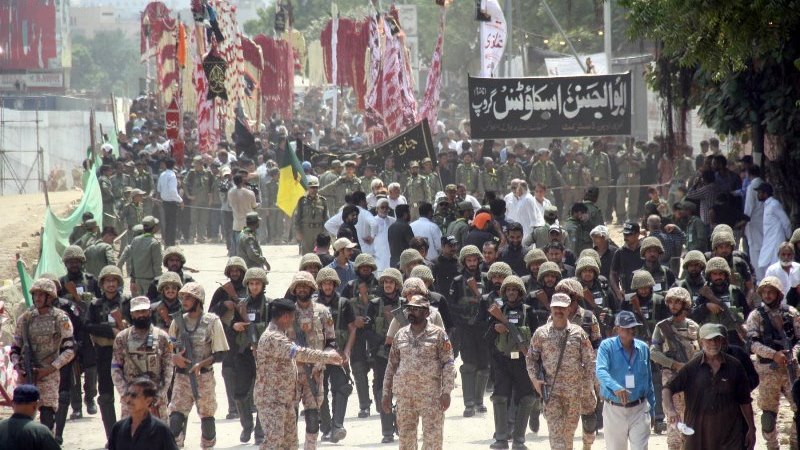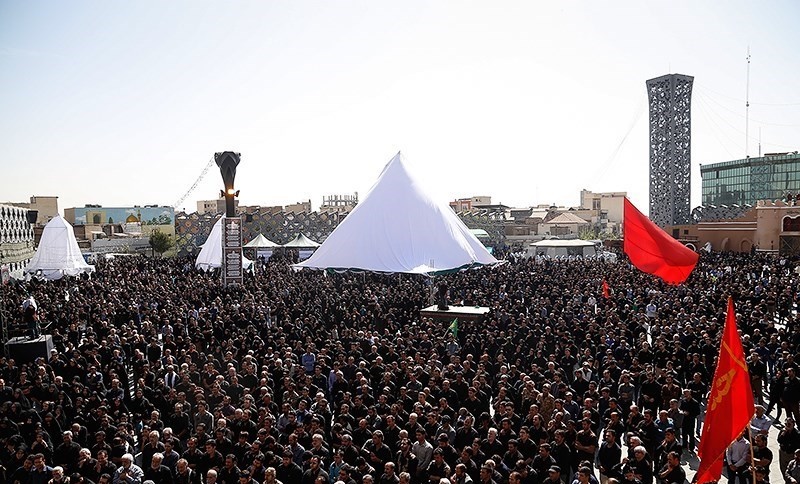ISLAMABAD: Mourners across the country actively participated in processions to honor and grieve the supreme sacrifice made by Prophet Muhammad’s (PBUH) family during the tragic events of Karbala, as they observed Ashura, the solemn tenth day of the first Islamic month, Muharram.
This day serves as a poignant reminder of the unwavering resilience of Hazrat Imam Hussain (RA). The beloved grandson of the Prophet (PBUH), his family, and devoted companions. Who valiantly defended Islam in the face of opposition and cruelty.
Processions commemorating this historic day are taking place in major cities and towns, where scholars and orators are actively delivering sermons, shedding light on various aspects of the Karbala tragedy.
To ensure the safety of mourners during the processions, elaborate security arrangements have been implemented nationwide to prevent any untoward incidents.
Meanwhile, following the interior ministry’s directions to the Pakistan Telecommunication Authority (PTA). Mobile signals remain shut in several cities not only on Muharram 9 and 10 but also on Muharram 11.

Arif Alvi calls for Unity and security
President Dr. Arif Alvi shares a message on this historic day’s commemoration, urging the countrymen to set aside differences. And promote compassion, tolerance, and consultation to foster unity and work for the development of Pakistan.
The president called for a renewal of the commitment to promoting the fundamental principles of Islam. And adopting the teachings of Hazrat Imam Hussain (RA), as well as trying to emulate his courage and steadfastness in their own lives.
President Alvi emphasized that Hazrat Imam Hussain (RA), the grandson of the Holy Prophet (PBUH). Made a great sacrifice at Karbala during the battle between truth and falsehood and for the protection of Islamic values. He notes that this battle represented a struggle for the exaltation of Islam. Characterized by a principle stance and unwavering bravery.
The president highlights that Hazrat Imam Hussain’s (RA) stance against the tyrant ruler Yazid was not motivated by power or revenge. But rather it was a principle stand for justice. The protection of Islamic values, and safeguarding Islamic society from corruption and oppression. He underscores that this courageous act teaches people not to bow to oppression and wrongdoing. But to raise their voices against injustice, regardless of the cost.










